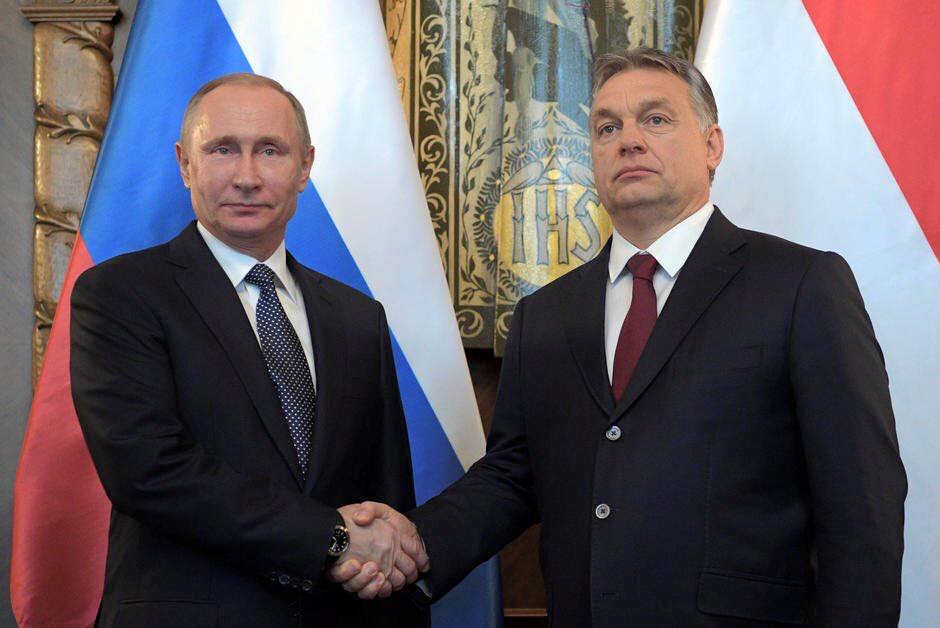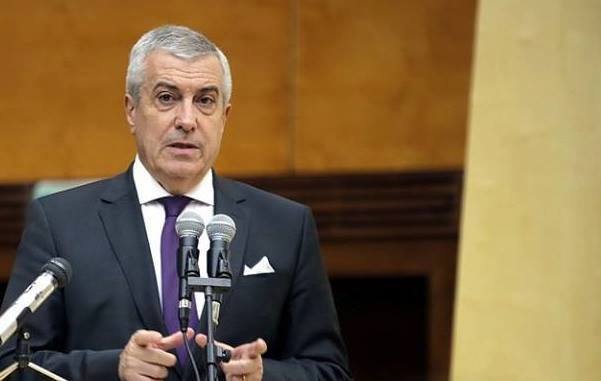Poland – “Kaczyński’s Germanophobia and his extreme unwillingness to build a strong European Union have led to Putin’s fascist friends now being welcomed as heroes in Warsaw. Another step towards dismantling the European Community from within. And another step towards Polexit.” This is how Borys Budka commented on the meeting of the leaders of ten European conservative parties held last Saturday in Warsaw at the invitation of the Poles. Budka was until last July the leader of the Civic Platform (PO), now led by Donald Tusk, and he is now the chairman of the Civic Coalition (KO) group in the Sejm. This is the main opposition group, uniting the PO with the liberal-progressive Nowoczesna (Modern) party and the Greens. Budka’s commentary reflects quite well the content and tone of the criticism heard in the Polish opposition media about this conservative summit.
Professor Andrej Zebertowicz, advisor to President Andrzej Duda, has given the following reply: “Let’s compare two forms of pro-Putinism: that of Mrs Le Pen, who took a loan of a few million [an allusion to the 9 million euro loan obtained on market terms from the First Czech-Russian Bank in 2014, to finance the FN’s 2015 regional election campaign when no French bank would agree to lend it money, although campaign costs were to be later refunded by the state; ed.], and that of Mrs Merkel, thanks to whom Russia earns billions on gas sales.”
“Politicians who may have supported Putin on an ad hoc basis or dressed in pro-Putin T-shirts for reasons of political tactics are a lesser evil than politicians who, together with their country’s business groups, structurally disrupt the Union’s ability to develop safely”, the presidential adviser went on to say, promising that “Jarosław Kaczyński is not and will not be a hostage to Mrs Le Pen, while Donald Tusk was and remains a hostage to the German elite.”
Radosław Fogiel, a senior PiS spokesman, has given the same kind of answer to the opposition’s reproaches: “Unlike many politicians in the parties that make up the European People’s Party or the European Social Democrats, Marine Le Pen does not work for any Russian energy company.” Tomasz Poręba, a PiS MEP, also quoted by the newspaper Rzeczpospolita, has added names to PiS’ answer to its critics: “The colleagues of Mr Tusk, Mr Miller, Mr Cimoszewicz, and Mr Sikorski from the political groups cooperating with the Civic Platform and the SLD in the European Parliament – I am thinking here of former German Chancellor Schröder, I am thinking of former Austrian Chancellor Schüssel, I am thinking of former Finnish Prime Minister Lipponen, I am thinking of former French Prime Minister Fillon, and I am thinking finally of former Austrian Foreign Minister Kneissl – have all found jobs. Where? In companies that cooperate with Gazprom and in companies that are directly linked to Putin. Who is pro-Putin here? Who represents Putin’s interests, including his economic ones? ”
A lot of water has flowed under the bridge since the first years of government by the United Right coalition led by Jarosław Kaczyński’s Law and Justice (PiS) party. At the time, a National Front MEP asked me if I could put him in touch, during his visit to Warsaw, with PiS MPs who were particularly involved in Franco-Polish relations. None accepted. PiS kept its contacts with Marine Le Pen’s party to a minimum. On the one hand, it was a question of not giving grist to the Polish opposition and not exposing itself to accusations of being close to the “far right” and to “Putin’s friends”. On the other hand, PiS was strongly convinced that parties like the French FN, which has since become the National Rally, or Rassemblement National (RN), and the Italian League were indeed pro-Putin, Russophile, anti-EU, and anti-NATO, and such characteristics have always been perceived by Kaczyński’s party as being contrary to Polish interests. But since then, the difficulty of getting along with Emmanuel Macron’s France, the aggressiveness and permanent interference of the EU institutions towards Poland and Hungary, and finally the feeling that the EU institutions are dominated by Berlin, where a new Eurofederalist coalition is now coming to power, have made the Polish leaders understand, in the wake of the Hungarian government’s change of heart, that, paradoxically, it is with parties such as the French National Rally, the Italian League and Brothers of Italy, the Vox party in Spain and other conservative or moderately sovereignist parties that it will be possible to save the European Union, which the Polish and Hungarian leaders hold dear, without sacrificing independence and democracy.
Marine Le Pen, to whom I put the question during her meeting with French journalists after Saturday’s working meetings of the conservative leaders and joint press conference, makes the same analysis as to why PiS politicians have changed their minds about her, which she puts down to “the European Commission’s unrestrained attacks on a certain number of nations that resist the loss of their sovereignty” and to the fact that “everyone is aware that Germany has set itself up, perhaps precisely because of France’s weakness, to lead the European Union”, while “the new German coalition is bent on a forward march towards European federalism and on once again having a policy of mass immigration. ”
“Ask Marine Le Pen if her model is Hungary or Poland. She spent years trying to make people believe that she had become de-demonised, and now she is going to ally herself with people who are rolling back rights in Europe”, said Clément Beaune, Emmanuel Macron’s secretary of state for European affairs, on Saturday, commenting on Marine Le Pen’s meetings with Mateusz Morawiecki and PiS leader Jarosław Kaczyński. Funnily enough, Beaune’s boss, who had himself recently met the Polish prime minister at the Élysée Palace, was visiting Saudi Arabia on the same day, and French Interior Minister Gérald Darmanin would have come to Warsaw two days earlier to meet his Polish counterpart had the latter not fallen ill, forcing Darmanin to postpone his visit. “He’s not the sharpest knife in the drawer”, remarked Marine Le Pen, whom I had asked to comment on this attack by Beaune, and her remark made the journalists present chuckle. Then the leader of the National Rally pointed to Macron’s meetings and the one that had been planned by Darmanin. When a French journalist asked her whether she had spoken to her Polish interlocutors, and in particular to the Prime Minister and the Minister of Justice with whom she had dined on Friday evening, about “the almost total ban on abortion”, by which the journalist was referring to the ban in Poland on abortion on the grounds of the disability of the unborn child, Le Pen said that her vision of democracy and sovereignty was that Polish abortion law corresponded to the will of the Polish people and that it was not up to her, or to a French journalist, to impose her vision on Poland.
“Emmanuel Macron has angered the whole world against us”, believes Marine Le Pen, saying that “contempt is an operating mode” for the French president, who displays his arrogance “not only towards the French but towards all those who are recalcitrant”. “It will therefore be necessary to repair [international relations]”, Le Pen thinks. This was a response to my request for a comment on the fact that Emmanuel Macron, after having called the current Polish and Hungarian leaders “crazy minds” and having said in 2018 that the policies of then Italian Interior Minister Matteo Salvini made him sick, recently claimed that the UK was run by “a clown”. Marine Le Pen also said she believed the problem of French fishermen’s fishing licences after Brexit was a British retaliation to France’s stated desire to punish the UK for leaving the EU, and that a break with such a policy was needed to solve the conflict over fishing.
As for the Italians Matteo Salvini (League) and Giorgia Meloni (Brothers of Italy), they were not present in Warsaw on Saturday. In fact, it was mainly Salvini’s absence that was noticed, as he had cancelled his visit just before the summit due to PiS’ refusal, probably under the influence of Giorgia Meloni, whose MEPs belong to the same European Conservatives and Reformists (ECR) group in the European Parliament, to form a single right-wing group with the MEPs from today’s ECR and Identity and Democracy (I&D) groups. The latter is the group comprising, among others, the RN, the League and the Austrian FPÖ, which was present in Warsaw on Saturday. The new common group would, however, exclude the Alternative for Germany (AfD) party, due to its position on leaving the EU. There were ten parties represented in all, with Hungarian Prime Minister Viktor Orbán and his Family Minister Katalin Novák representing Fidesz. Santiago Abascal, the leader of the Spanish liberal-conservative Vox party, attended the Warsaw summit too. The common vision of these parties, which does not include (or no longer includes) leaving the EU, was expressed in a joint statement that follows the one issued by fifteen parties from fourteen countries in July.
In particular, Saturday’s declaration states that “Only through such a model of European cooperation can we save the EU from further crises and tensions, and put a stop to the disturbing idea of creating a Europe governed by a self-appointed elite. We reject the arbitrary application of Union law, bending or even violating the Treaties. Only the sovereign institutions of the states have full democratic legitimacy. European institutions do not enjoy the same legitimacy, and therefore they should play a subservient role to the nation state in the political architecture. Equally, for this reason they cannot become a tool of social engineering aimed at creating a new ‘European nation’. (…) Such a concept of the nation has never existed, does not exist today nor can it exist in the future. The participants declare their will to cooperate in a spirit of solidarity, at various levels and forums with all parties and organisations that hold Europe’s unique heritage and the idea of a Europe of Nations dear. ”
A few “antifas” did try to disrupt the meeting, but the heavy police presence around the Regent Hotel on Warsaw’s prestigious Belwederska Street, where the conservative summit was being held, was such that they were barely noticed. The editor-in-chief of the Eurofederalist, progressive and violently anti-PiS weekly Newsweek Polska, Tomasz Lis, could not help but comment on the meeting with a tweet that was as angry as it was ridiculous, and which has been much mocked: “Poland as a facilitator and promoter of a fascist, nationalist and pro-Putin international is the bottom line and it dishonours Kaczyński on a monumental and historical scale. ”




